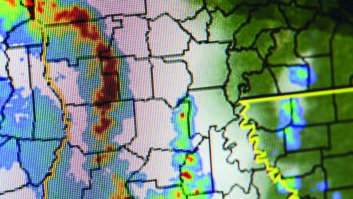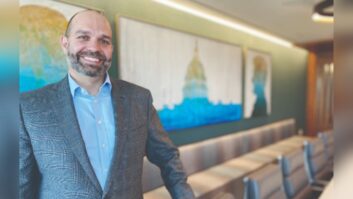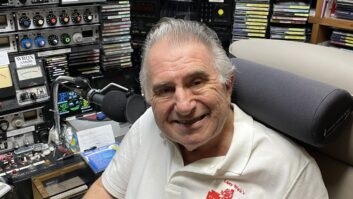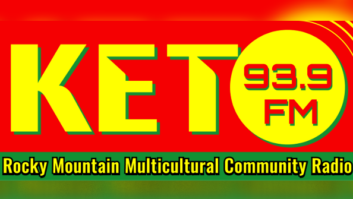The National Federation of Community Broadcasters and the Grassroots Radio Coalition both chose the West Coast for fall gatherings that explored critical issues facing community radio.

While NFCB’s more intimate regional summit in Santa Rosa, Calif., was geared mainly towards local member stations, GRC’s national conference in Portland, Ore., was broader in scope, with representatives from 61 stations in attendance. The agenda for both events included not only nitty-gritty sessions (think fundraising, automation systems, digital media, and more), but also plenaries and keynotes focused on emergency broadcasting and the state of community media.
FIRE — THE BACKDROP OF NFCB SUMMIT
Less than a year after the devastating Tubbs fire (the most destructive wildfire in California history until it was surpassed by the Camp Fire), approximately 100 community radio participants gathered in Santa Rosa at NFCB’s Regional Summit.
Ernesto Aguilar, NFCB program director, notes that “Santa Rosa was perfect with the proximity of member stations [KWMR, KBBF, KRCB] directly in the community, and the many California and [Pacific Northwest] stations for whom the trip was possible.”
He said, “Given all the community has faced with wildfires, it also was a relevant backdrop to the emergency preparedness conversation NFCB has centered at our summits.”
NFCB CEO Sally Kane launched the organization’s regional summits in 2015 to connect with member stations and experiment with a pared down, more affordable conference experience.
“It was a way to inform myself about station realities on the ground and hear from a broader array of folks that the usual suspects who come to the national conference,” she said. “As a new leader to the organization, I wanted to ground myself in the field experience and get to know the stations and the people in their own spaces.”
The Santa Rosa gathering was the last in a trio of 2018 NFCB summits, preceded by events in Charlottesville, Va., and Grand Rapids, Mich. Purposefully site-specific, the Santa Rosa summit kicked off with an evening reception attended by a city council member and deputy fire chief.
A plenary session the next day, “Community Radio Emergency Response: California Wildfires,” made clear that Santa Rosa was still recovering from its fires a year later. Moderator Steve Mencher, news director at Northern California Public Media, thanked out-of-town attendees for “coming to our city,” saying that for the residents, the October 2017 fires are still very much a part of everyday life.

Panelists also shared what it was like to be on-air during an emergency. At KRCB(FM), Mark Prell was first at the station the morning of the fires. Cell service was cut off, power was out, and KRCB’s main transmitter was down. With “rumors flying,” the station decided to only broadcast verifiable information, and it also stuck with its existing morning and afternoon news format, maintaining its daytime music programming.
Edgar Avila, program director of KBBF(FM), spoke of the challenges of providing emergency coverage to the large Spanish-speaking audience in Santa Rosa when there was a dearth of information on the fires available in Spanish. By 7 a.m., KBBF had volunteers doing research and translating material, because at that point in the emergency, there were no official sources of information in Spanish. KBBF ended up doing non-stop coverage.
Avila said, “We are the only station in our region that … does public affairs programming in Spanish,” and during the fires KBBF was “the lifeline for the Spanish-speaking community.”
Jeff Parker from KZYX(FM) said, “There are no opportune times for disasters.” Fires broke out in Mendocino County in October 2017 a few hours after the station’s fall pledge drive ended. One of their transmitters got knocked out and cell, phones and internet went down in parts of the community.
Parker said, “Why did … our signal not collapse? A huge, proper, defensible perimeter around the tower that Cal Fire maintained and our use of old-fashioned STL microwave. We weren’t using fiber, the digital modern thing up the side of a mountain that would burn. And a lot of luck.”
An experienced programmer also held things together, providing information over the air through the night. Parker recommended that stations work on emergency planning and protocols, including systems for sharing information among volunteers and programmers. More massive fires broke out in July 2018, once again testing KZYX. Parker pointed out that with even bigger disasters, the response becomes more complex, adding that because of that, “we community stations must find ways to support each other.”
ACCESS, EQUITY & ACTIVISM

During three days of panels, workshops, and keynotes, the 2018 Grassroots Radio Conference in Portland, Ore., drew close to 200 participants from 61 radio stations, evenly split between low-power and full-power FM outlets) from Alaska to Florida. Like the GRC Summit, the event had pragmatic sessions on topics ranging from audio editing to website security. Additionally, overarching themes of access, equity and activism were addressed across panels as well as during keynotes by former FCC Commissioner Mignon Clyburn, ACORN International’s Wade Rathke and journalist David Barsamian.
Grassroots Radio Conference 2018 co-chair Becky Meiers — KBOO(FM) development director at the time — said, “This was my first GRC, and I felt it was important to bring some big-picture thinking to our grassroots-level, hyper-focused work. … I wanted us to think a little more deeply [about] the systems-level transformation we hope to achieve in an ever-evolving world.

“How then do we convey our theory of change to build participation and awareness? How do we leverage our collective power to face the challenges of a changing regulatory and technological paradigm? How do we deeply address systemic barriers to access?”
These topics were addressed by Clyburn during her keynote, “Community Media Is the Future.” Sharing her appreciation for radio, Clyburn told the audience, “Radio is the purest form of media,” adding that it “is tangible. It is always available … it never goes out of style.”
As she addressed a packed room full of community radio participants, she lauded non-commercial media, stating that these outlets “speak for the too-often ignored.” Clyburn added, “We’re going to need you more than ever before.”
Articulating terrestrial radio’s ability to reach a wide population, she reiterated that broadband internet is not accessible to all and that radio still has the power to be “disruptive,” to borrow a term from the tech industry. “The reason why I came here … is because I believe in you,” Clyburn said.
Along similar lines, Barsamian told a lunch-time crowd of community media participants that “the times demand active engagement” and “we are the cure for this wave of propaganda.” He called for inclusivity and equity in media in light of what he sees as an “erosion of democracy.”

Before a screening of the documentary “The Organizer” about his work with ACORN, Rathke echoed these sentiments. Heavily involved with community radio at KABF(FM) in Little Rock, Ark., and at WAMF(LP) in New Orleans, he said he’s a proponent of “this voice-of-the-people thing,” arguing that now is the time when certain constituencies need a “megaphone of a voice.”
While host station KBOO(FM) — a station that recently celebrated its 50th anniversary — offered up its best practices in numerous panels and welcomed attendees to an open house, personnel from new LPFM stations — including an engaging presentation on creating a fundraising prospectus by LaGanzie Kale, general manager of KLEK(LP) — were also on the schedule, giving advice and practical tips from their perspectives.

Some folks attended both the NFCB Summit and the Grassroots Radio Conference, including representatives from San Francisco Public Press’ soon-to-launch KSFP(LP).
Program Director Stacy Bond said, “Both seemed like good opportunities to start getting our core team members immersed in the practical aspects of making radio and operating a station,” as well as providing an opportunity to “tap into the current thinking around programming, operations and the technical aspects of radio.”

NFCB’s Aguilar said one surprising takeaway from the summit was “the growing awareness of stations about core service to communities. Sometimes we as an ecosystem can get in the weeds about affairs inside the building. Fires, emergencies and the cultural moment have reminded all of us that outside the building is crucial to our prosperity. To its credit, community radio is stepping up more to meet the challenge.”
Jennifer Waits is co-founder of Radio Survivor and co-chairs the College, Community & Educational Radio Caucus on the Library of Congress’ Radio Preservation Task Force. She’s fascinated by the culture of radio and has visited more than 120 radio stations in the United States and in Ireland. A long-time college radio DJ herself, she hosts a weekly show at KFJC 89.7FM in Los Altos Hills, Calif.












